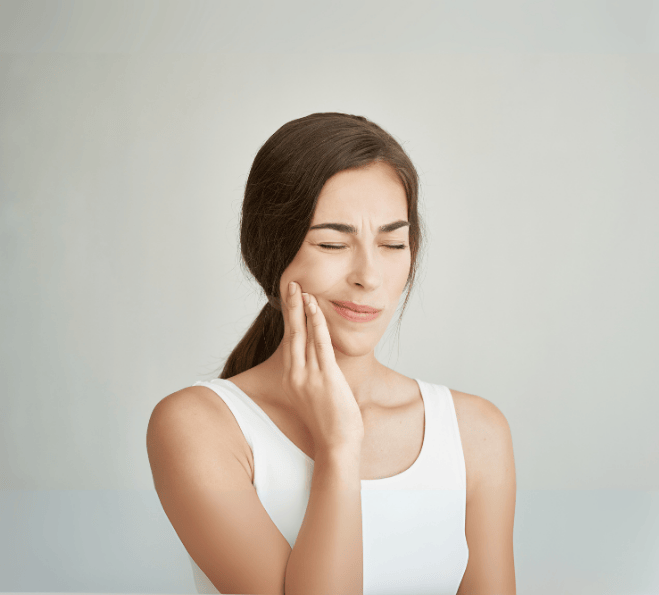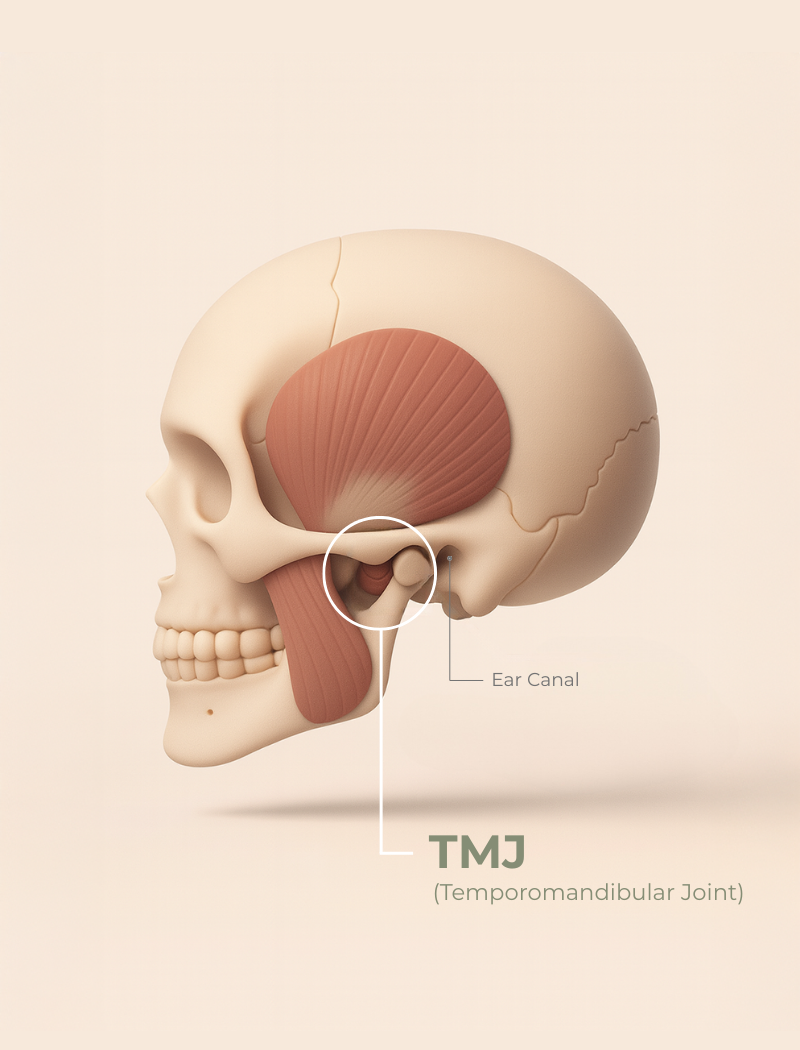DENTIST IN NEUTRAL BAY | TMD & OROFACIAL PAIN
TMD (Jaw Pain) Treatment
Advanced, compassionate care for jaw pain, headaches, and teeth grinding
If you’re experiencing jaw tension, headaches, or a locked jaw, you’re not alone. Up to 1 in 10 people suffer from Temporomandibular Disorders (TMD) or orofacial pain, which can affect daily comfort, sleep, and quality of life.

What is TMD?
Temporomandibular Disorders (TMD) is a broad term for conditions affecting the jaw joint (TMJ), chewing muscles, and related structures. Causes may include:
-
Clenching and grinding (bruxism)
-
Joint or disc problems
-
Ligament strain or instability
-
Nervous system dysfunction
TMD can be temporary or chronic. An accurate diagnosis is important, as different causes require different treatments.

TMD & Orofacial Pain Explained: Causes, Symptoms & Why Treatment Matters
Common Signs and Symptoms of TMD
-
Jaw pain or stiffness (often worse in the morning or during stress)
-
Headaches, neck pain, or facial pain
-
Clicking, popping, or locking of the jaw
-
Muscle tightness with chewing, speaking, or yawning
-
Limited jaw movement or “locked jaw”
-
Worn, sensitive, or fractured teeth
-
Sleep disruption or snoring
-
Referred pain in the temples, neck, shoulders, or ears
TMD often coexists with other conditions such as fibromyalgia, chronic fatigue, or anxiety, making early assessment even more important.
Why TMD is Complex
TMD is rarely just a “jaw problem.” It often involves:
-
Stress and overactivation of the nervous system
-
Airway or sleep dysfunction
-
Poor posture and muscle co-activation in the neck and shoulders
-
Central nervous system pain amplification
At Oaks Dental, we look at the whole body, not just the jaw, to identify the root causes of your pain.
Why TMD treatment matters
Ignoring TMD symptoms can lead to worn or fractured teeth, ongoing headaches, disrupted sleep, and long-term damage to the jaw joint. Early treatment not only eases discomfort but also prevents further complications, supporting your overall health and wellbeing.

What to Expect in a TMD Assessment
During your first visit, we take time to understand your symptoms and complete a full evaluation:
-
Detailed discussion of pain, triggers, lifestyle, and history
-
Functional exam of jaw movement, bite, and muscle tension
-
3D imaging (CBCT) to assess the joints and structures
-
Sleep and wellbeing screening, as TMD often links to stress or sleep issues
This thorough approach allows us to design a personalised treatment plan.
TMD Treatment at Oaks Dental
We take a conservative, evidence-based approach to reduce pain and restore function. Treatment may include:
Custom night guards (occlusal splints) to reduce muscle strain and protect teeth
Bite recalibration and deprogramming
Collaboration with physiotherapists, myofunctional therapists, ENTs and sleep physicians
Orthodontics (braces or aligners) where misaligned bites contribute to TMD
Referrals to trusted specialists for holistic care

Frequently Asked Questions About TMD
Can stress cause TMD?
Yes. Stress often triggers clenching and grinding, which worsen jaw tension and pain.
Will TMD go away on its own?
Some mild cases improve with rest or short-term splint use, but chronic symptoms should be assessed to prevent long-term damage.
Are night guards effective?
Yes — custom-fitted occlusal splints are one of the most effective, non-invasive treatments for TMD. They reduce strain, relax jaw muscles, and stabilise your bite during sleep.
How long does treatment take?
Relief can start within days of using a splint, though more complex cases may require several months of multidisciplinary care.
Should I use an over-the-counter night guard?
Sometimes they can be used as a temporary or as a trial splint, but we don’t recommend them long-term.
Wondering if your headaches are linked to your jaw?
Don’t let jaw pain, headaches, or teeth grinding affect your life. At Oaks Dental, we’re here to listen, diagnose, and create a clear, personalised path to recovery.
